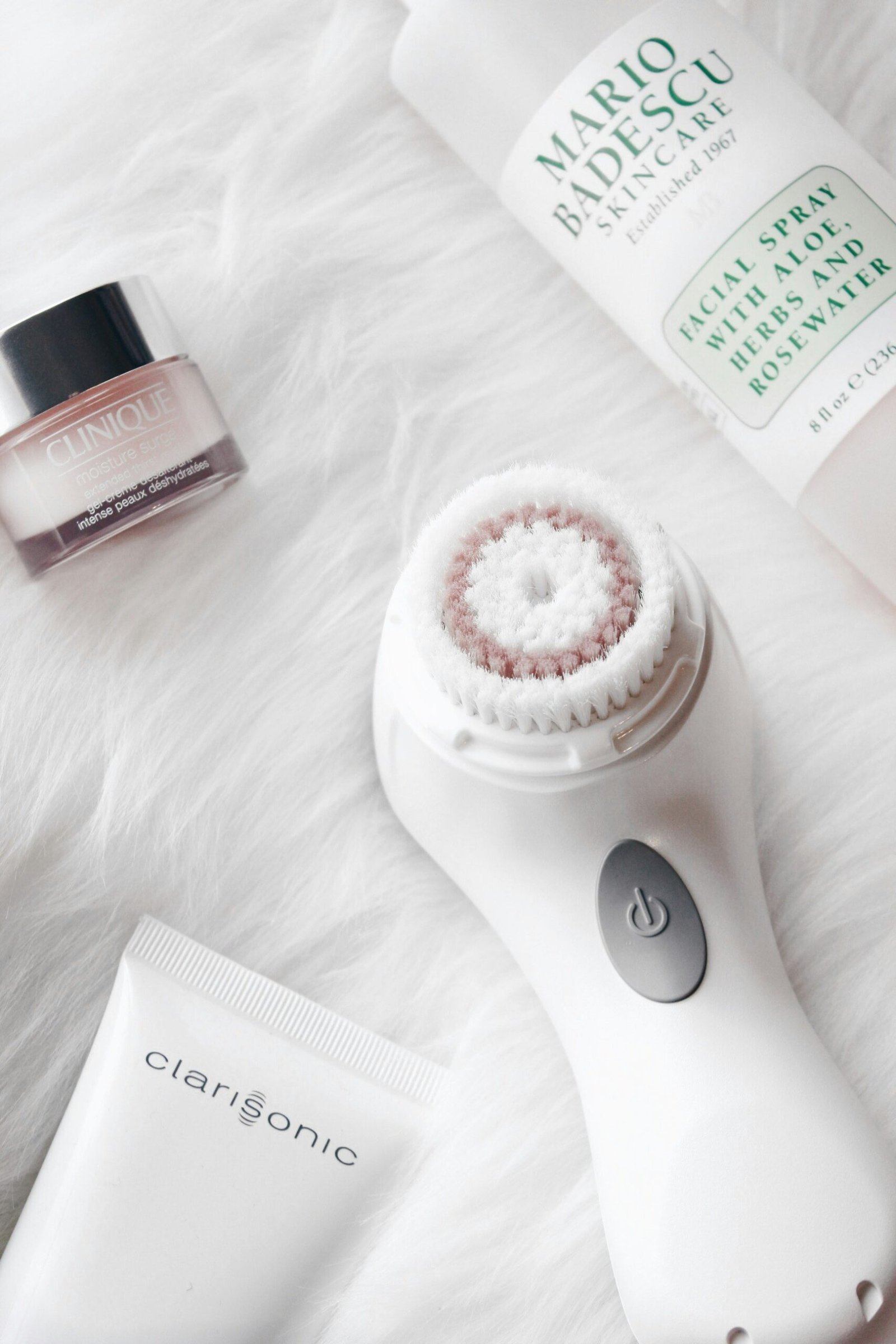
Skincare plays a crucial role in achieving and maintaining clear and glowing skin, serving not only as a means of physical appearance enhancement but also as a significant contributor to overall well-being. By investing time and effort into a suitable skincare routine, individuals can effectively prevent a variety of skin issues, including acne, dryness, and premature aging, while simultaneously promoting their natural beauty.
One of the fundamental aspects of skincare is its capacity to nurture the skin, fostering health and vitality. This nurturing can be enhanced through the implementation of tailored routines that address specific skin types and concerns. The selection of appropriate products, from cleansers to moisturizers, significantly affects the skin’s texture and appearance. The proper use of active ingredients can enhance skin radiance and reduce imperfections, leading to a more harmonious complexion.
Moreover, the psychological benefits associated with maintaining a regular skincare routine should not be overlooked. Engaging in self-care practices, such as applying skincare products, can promote feelings of relaxation and self-appreciation. These activities help to elevate one’s confidence and self-esteem, as individuals begin to see improvements in their complexion. Regular adherence to personal care routines fosters a sense of discipline and can significantly influence one’s mental health positively.
In essence, skincare transcends mere beauty rituals; it is an essential practice that directly correlates with physical health and psychological wellness. By prioritizing skincare, individuals embark on a journey towards not only achieving clear and glowing skin but also nurturing their confidence and self-worth, ultimately leading to an enhanced quality of life.
Understanding Skin Types
Recognizing your skin type is foundational to establishing an effective skincare routine. The principal skin types include oily, dry, combination, and sensitive, each presenting unique characteristics and needs.
Oily skin is characterized by an excess production of sebum, leading to a shiny appearance and enlarged pores. Individuals with oily skin may be prone to acne and blemishes due to clogged pores. It’s essential for those with this skin type to select oil-free products and non-comedogenic formulas to avoid exacerbating these conditions.
In contrast, dry skin often appears flaky, dull, and may feel tight or itchy. This skin type lacks sufficient moisture, making it crucial for individuals to use hydrating creams and serums that contain ingredients such as hyaluronic acid or glycerin. Regular exfoliation is also vital to remove dead skin cells and improve texture.
Combination skin presents a blend of both oily and dry areas, typically with an oily T-zone (forehead, nose, chin) and drier cheeks. This variability requires a balanced approach in product selection. Utilizing gentle cleansers and targeted treatments for different areas can help maintain equilibrium and avoid aggravation.
Lastly, sensitive skin is particularly reactive, often experiencing redness, itching, or burning sensations. Environmental factors and harsh products can trigger such reactions. Those with sensitive skin should opt for hypoallergenic products, focusing on soothing ingredients like aloe vera or chamomile.
To determine your skin type, observe your skin after cleansing and waiting a couple of hours. Take note of how your skin feels and appears to identify the dominant characteristics. Understanding your skin type is vital; it guides you in selecting appropriate products, ultimately enhancing your skin’s health. A tailored skincare regimen will not only prevent irritation but also promote clear and glowing skin.
Essential Skincare Ingredients
Skincare is an intricate realm that often centers around the ingredients employed in products. Understanding these key components is essential for achieving clear and glowing skin. Among the most prominent of these ingredients are antioxidants, hyaluronic acid, and retinoids, each contributing unique benefits to the skincare regimen.
Antioxidants play a vital role in protecting the skin from oxidative stress caused by free radicals. Vitamin C, for instance, is a potent antioxidant known for brightening the skin and promoting an even tone. It boosts collagen production, which is essential for maintaining skin elasticity. Additionally, Vitamin E works synergistically to further protect the skin from UV damage and helps in reducing signs of aging. When incorporating antioxidants, it is advisable to use them in the morning to maximize their protective effects throughout the day.
Hyaluronic acid is another indispensable ingredient celebrated for its impressive hydration properties. This naturally occurring molecule can hold up to 1,000 times its weight in water, helping to retain moisture in the skin. As a result, using hyaluronic acid not only hydrates but also imparts a plumping effect, leading to a more youthful appearance. It is suitable for all skin types and can be applied both morning and night, often before heavier creams or oils.
Retinoids, derived from Vitamin A, are renowned for their effectiveness in combating signs of aging and promoting cell turnover. They encourage the shedding of dead skin cells, revealing a fresher complexion underneath. While retinoids can lead to retinization, a transient period where the skin may initially become irritated, consistent use ultimately results in clearer and smoother skin. It is generally recommended to use retinoids at night, gradually introducing them into one’s routine to mitigate potential irritation.
In essence, selecting skincare products that harness the power of these essential ingredients can significantly enhance skin clarity and radiance. Making informed choices empowers individuals to curate a skincare routine tailored to their unique needs, leading to the coveted clear and glowing skin.
Daily Skincare Routine
A well-structured daily skincare routine is crucial for achieving clear and glowing skin. It generally consists of four essential steps: cleansing, toning, moisturizing, and sun protection. Each step plays a vital role in maintaining skin health and radiance.
The first step, cleansing, is critical as it removes dirt, oil, and impurities accumulated throughout the day. For best results, individuals should select a cleanser that is appropriate for their skin type. For example, those with oily skin may prefer foaming or gel cleansers, while individuals with dry skin might benefit more from cream-based formulations. Gentle cleansers help maintain the skin’s natural barrier without stripping away essential moisture.
Next, toning helps to restore the skin’s pH balance and further cleanse the skin by removing any residual impurities. Toners can also hydrate and prepare the skin to better absorb subsequent products. For those with combination or oily skin, toners containing ingredients like witch hazel or salicylic acid can be beneficial. Conversely, hydrating toners with rose or aloe vera extracts are preferable for dry or sensitive skin.
After toning, the moisturizing step ensures that the skin maintains its hydration levels. Selecting a moisturizer that suits one’s skin type is again vital. Lightweight, oil-free moisturizers are suitable for oily skin, while richer, creamier formulations cater to dry or mature skin. A good moisturizer creates a barrier, locking in moisture and preventing dryness.
Finally, the importance of sun protection cannot be overstated. Daily exposure to UV rays can lead to skin damage, including premature aging and pigmentation. Incorporating a broad-spectrum sunscreen with at least SPF 30 into the routine is essential, even on cloudy days, to ensure adequate protection against harmful rays.
By diligently following these steps, individuals can effectively address their specific skincare concerns and promote a healthier, more radiant complexion over time.
Exfoliation Methods
Exfoliation plays a crucial role in maintaining clear and glowing skin. This skincare practice involves the removal of dead skin cells from the surface of the skin, which helps to promote cell turnover, revealing a fresher and more vibrant complexion. The two primary types of exfoliation are physical and chemical exfoliation. Physical exfoliation employs granular substances or tools to manually slough off dead skin cells, while chemical exfoliation utilizes acids or enzymes to dissolve these cells and enhance skin texture.
Physical exfoliation methods can include scrubs with naturally derived ingredients such as sugar or salt, as well as tools like cleansing brushes or exfoliating gloves. While physical exfoliation can be effective, caution should be exercised to avoid excessive abrasion, which may irritate the skin. Typically, individuals with oilier skin may benefit from physical exfoliation one to two times a week, while those with sensitive or dry skin should limit their use to once a week.
Chemical exfoliation encompasses the use of alpha hydroxy acids (AHAs), like glycolic acid, or beta hydroxy acids (BHAs), such as salicylic acid. These substances work by breaking down the bonds that hold dead skin cells together, resulting in smoother and clearer skin. For those with oily or acne-prone skin, incorporating BHAs may be particularly beneficial, as they can penetrate pores and help clear blemishes. Chemical exfoliation should generally be performed no more than two to three times a week depending on individual skin tolerance.
While exfoliation is beneficial, over-exfoliation can lead to skin complications, including irritation, redness, and increased sensitivity. It is essential to listen to one’s skin and adjust the frequency and type of exfoliation accordingly to maintain a healthy, balanced complexion. By choosing the right method and frequency for their unique skin type, individuals can effectively harness the power of exfoliation for clearer skin.
Lifestyle Factors Affecting Skin Health
Skin health is deeply influenced by various lifestyle factors that serve as underlying principles for maintaining clear and glowing skin. A proactive approach in addressing diet, hydration, sleep, and stress management can substantially improve the skin’s appearance and overall wellbeing.
Diet plays a pivotal role in skin health, as the foods consumed provide essential nutrients needed for skin repair and vitality. Incorporating skin-friendly foods, such as fruits, vegetables, whole grains, and healthy fats, can effectively nourish the skin. Antioxidant-rich options like berries, leafy greens, and nuts help combat free radical damage, while omega-3 fatty acids found in fatty fish and flaxseeds support skin cell structure and hydration. Reducing the intake of processed foods and sugars is also vital, as such items can trigger inflammation and exacerbate conditions like acne.
Hydration, on the other hand, is crucial for maintaining skin elasticity and suppleness. Adequate water intake aids in flushing toxins from the body and maintaining optimal moisture levels in the skin. To promote proper hydration, it is advisable to aim for at least eight glasses of water daily, and consider incorporating hydrating foods such as cucumbers, oranges, and celery into one’s diet. Herbal teas can also be a wholesome alternative to achieve hydration goals.
Sleep is another cornerstone of skin health, with quality rest being essential for repair processes. During sleep, the body rejuvenates and restores skin cells, enhances blood circulation, and reduces stress-induced skin problems. Establishing a consistent sleep schedule and creating a calming bedtime routine can help cultivate healthy sleep habits.
Lastly, managing stress is integral as chronic stress can lead to adverse skin reactions, including breakouts and dullness. Practicing mindfulness techniques, such as meditation, yoga, or deep-breathing exercises, can foster emotional resilience and positively impact skin health. By addressing these lifestyle factors holistically, individuals can significantly empower their skincare routines and promote a vibrant complexion.
Common Skincare Mistakes to Avoid
Achieving clear and glowing skin is a goal for many, but certain skincare mistakes can impede this journey. One of the most prevalent errors is utilizing an excessive number of products in a single skincare routine. While the intention behind layering products may be to enhance efficacy, this can often overwhelm the skin. Instead of achieving desired clarity, individuals may experience irritation or breakouts. It is advisable to simplify one’s routine to a few key products targeted to specific skin concerns. This approach allows the skin to breathe and respond appropriately to treatment.
Another common mistake is neglecting the use of sunscreen. Despite the well-documented benefits of sun protection, many individuals tend to skip this crucial step, especially during cooler months or when indoors. Ultraviolet (UV) rays can cause significant long-term damage to the skin, leading to premature aging, dark spots, and other complexion issues. It is essential to incorporate a broad-spectrum sunscreen into the daily routine, regardless of the weather, to safeguard the skin and maintain its radiance.
Furthermore, individuals often ignore changes in their skin over time. As one ages or encounters different environmental stresses, the skin’s needs evolve. Ignoring these changes can lead to the continued use of ineffective products. Regularly assessing one’s skin type and condition will allow for adjustments to the skincare regimen, ensuring it remains effective and suitable. Embracing versatility in a daily routine fosters not just clear skin but promotes longevity in achieving a healthy glow.
By being mindful of these common skincare mistakes, individuals can enhance their skincare regimen significantly. Prioritizing a streamlined routine, diligent sun protection, and adaptability to skin changes can pave the way toward maintaining clear and luminous skin.
The Role of Professional Treatments
Professional skincare treatments play a pivotal role in achieving clear and glowing skin. While a regular skincare routine at home is beneficial, the expertise and advanced technology offered by dermatologists and estheticians can address various skin concerns more effectively. These professionals can provide tailored treatments that meet individual skin needs, such as facials, chemical peels, microdermabrasion, and laser treatments.
Facials are one of the most common procedures, often designed to cleanse and rejuvenate the skin. They typically involve deep cleansing, exfoliation, and the application of masks or serums that deeply nourish the skin. Specific facials, such as hydrating or exfoliating facials, can effectively target particular skin issues, such as dryness or acne, resulting in a brighter complexion. These treatments are ideal for individuals looking for immediate results and long-term skin health.
Chemical peels, another professional option, use chemical solutions to exfoliate the skin at a deeper level, revealing fresh layers beneath. They can diminish the appearance of fine lines, sun damage, and acne scars. Depending on the solution used, chemical peels can range in strength from mild to deep, making them suitable for various skin types. It is advisable for individuals with concerns like hyperpigmentation or uneven skin tone to consider this treatment under professional guidance.
Microdermabrasion is a minimally invasive procedure that polishes the skin’s surface, increasing cell turnover and promoting the growth of new skin. This treatment can significantly improve skin texture and tone, making it suitable for those struggling with dullness or roughness. Similarly, laser treatments encompass various techniques that can address numerous issues, from acne scars to uneven pigmentation, delivering more significant and lasting results.
Overall, seeking professional skincare treatments can provide tailored solutions that enhance skin health and appearance, offering individuals an opportunity to achieve the clear, glowing skin they desire.
Conclusion and Final Tips
In summation, achieving clear and glowing skin is a multifaceted process that requires a comprehensive approach. As highlighted throughout this blog post, the essential elements of a successful skincare regimen include understanding your unique skin type, employing products suited to your specific needs, and incorporating healthy lifestyle choices. Keeping these key factors in mind is crucial as you embark on your personalized skincare journey.
One of the most important takeaways is the necessity of patience and consistency. Skincare is not an overnight solution; results take time to manifest. It is vital to remain committed to your routine and give your skin the time it needs to adapt and respond positively. Regularly utilizing products rich in beneficial ingredients can support skin repair and promote a radiant appearance, reinforcing the notion that consistency is key.
Additionally, integrating a few final practical tips can significantly enhance the efficacy of your skincare routine. Aim to stay hydrated by drinking ample water each day, as this aids in maintaining skin elasticity and overall health. Incorporate a balanced diet rich in fruits, vegetables, and healthy fats, which can nourish your skin from within. Furthermore, never underestimate the importance of sun protection; utilizing a broad-spectrum sunscreen daily helps shield your skin from harmful UV rays, preventing premature aging and maintaining a youthful glow.
By adopting these strategies and remaining attuned to the specific needs of your skin, you can make strides towards achieving the clear and glowing complexion you desire. Remember that every individual’s skin is unique, so don’t hesitate to adjust your regimen to find what works best for you. Embrace this journey towards healthier skin with confidence, knowing that each step you take brings you closer to your skincare goals.






